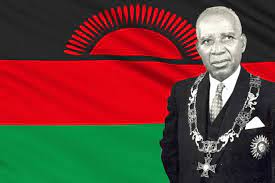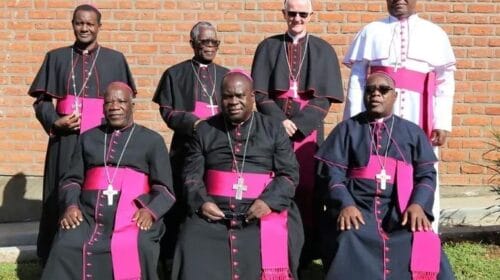Ganduje’s Three Special Assistants On Streetlights And Emir Sanusi’s Bombshell By Olabisi Deji-Folutile
People can say anything about the Emir of Kano, Lamido Sanusi Lamido, but one thing that is not likely to be taken away from him is his frankness – always honest and direct. He speaks the truth, at least, to his fellow Northerners. His candour is often condemned by the Northern oligarchy, but he doesn’t seem to care. His speech at the 60th birthday of Governor Nasir El’ Rufai of Kaduna State, is a classical example. There, he told his people that the north would destroy itself except there was a paradigm shift in the region. Although some people have argued that the speech was a gambit to gain sympathy, and that he too had benefitted from the same system he is now trying to condemn, this hasn’t taken away the fact that he spoke the truth. I agree that the emir has always been in the corridor of power and that he had enough influence in the past to have done something before now about the ugly situation in the north if he was truly concerned, however, it is not too late to start doing the right thing.
I was particularly happy that the emir publicly acknowledged that people from the north are taking undue advantage of others, an anomaly that has fuelled calls for the restructuring of Nigeria in recent times. Every day we are witnesses to the tragedy of quota system and the so-called federal character principle in Nigeria. If one looks at the process of admission to Federal Government-owned unity schools, the quota system favours the north. A candidate from the north could score as low as six marks and secure a space while another candidate from another part of the country may score 200 and still be denied admission. A similar scenario plays out in admission process to federal universities. Almost all the states in the north are classified as educationally disadvantaged states. The implication of this aberration is that unqualified candidates from the region utilise the few slots that ought to have been given to qualified candidates from other parts of the country on a silver platter. In other words, with quota system, Nigeria sacrifices admission spaces that should have been utilised by its best to satisfy its worst candidates. Unfortunately, the same rule is applied when recruiting personnel for the nation’s civil service, the supposedly engine room of government. The North is given priority above other regions, all in the name of federal character. Yet we continue to wonder why the country is not moving forward. How can the country make a head-way under this kind of obnoxious arrangement?
Sanusi had told guests at El Rufai’s birthday that it was high time the North started to think of getting things in Nigeria on the basis of merit and competition. He warned them that the quota system that everybody was talking about must have a sunset. He said it was worrisome that the North had the largest chunk of poverty, out-of-school children and beggars in the country. His words: “If the North does not change the situation it is grappling with today, it will destroy itself. We need to get our northern youths to study harder, get the required educational qualifications to compete with Nigerians for jobs and other positions instead of relying on quota allocations. This is because the rest of the country may not wait for the north forever.
“Nine states in the North contribute almost 50 per cent of the entire malnutrition burden in Nigeria. There is drug problem, Almajiri problem and Boko Haram problem in the North. The North cannot continue to rely on quota system and federal character to get jobs for its children at the expense of the other parts of the country, which are busy turning out graduates.”
Truth be told, the North has dragged this nation backward for too long. The region is truly the capital of poverty in Nigeria as reflected in the 2016 World Bank Report. According to the report, the North accounts for 87 per cent of all the poor in Nigeria. If not for the social media, a lot of things happening in the region would have been hidden from the rest of the world. Take the issue of Almajiri, for instance, I’m told it is a taboo to condemn it in the north. I remember my encounter with some of them at a filling station in Kano some years back. That was my first time of seeing a horde of children with empty plates begging for food openly. I was scared and at the same time surprised. The journalist’s instinct in me wanted to capture the moment. However, a senior colleague warned against it. He said the whole place could be set on fire if I did a thing like that. He then explained that Almajiri was part of the Northern culture and that almost everyone that mattered in the region had at one time or the other gone through the practice. It’s a culture, yet the children of the elite don’t do it. The ones on the streets are always the children of the downtrodden in the region. The number of Almajiris in the north increases every day. Schools built for them by the Goodluck Jonathan’s administration have been abandoned.
What surprises me in all of this is that many leaders in the north still consider the situation in the region as normal. One would have expected all the governors in the region to at least declare a state of emergency in the education sector and mount up campaigns against Almajiri to boost enrolment in schools. But, we are not seeing much of that. Apart from Kaduna State where the government is driving compulsory education and threatening to apply the UBEC Act against parents that failed to send their children to school, little is heard of other governors in the region in the area of interventions in the education sector.
Rather, in the midst of the problems confronting the North, the priority of a state like Kano, is to appoint three people as Senior Special Assistants on Street Light Matters. The State Governor, Abdullahi Ganduje, saddled the three special assistants with the responsibility of handling issues concerning generators and diesel used in powering the streetlights in the state. The governor’s spokesman, Salihu Yakasai, who confirmed the appointment, said the special assistants would report to the state’s Commissioner of Works and Infrastructure and not directly to the governor as if that made any difference.
A popular adage says what matters most to an individual is what takes his attention. That is the reason why buying diesel and maintaining generators to provide streetlight is what Ganduje considers to be of utmost importance of all the problems confronting Kano State. There are hundreds of thousands of out-of-school children in Kano State alone but Ganduje does not consider such a problem worthy of attention. Perhaps, the governor would have been pardoned if his three new special assistants had been given the mandate of ensuring that all school age children in the state are registered and retained in school. Of course, appointing three people to do that would still have amounted to a waste of resources, but at least the rest of the country would have been comforted with the assurance that the end would eventually justify the means.
Interestingly, the so-called elite in Kano State still don’t seem to see anything wrong with the governor’s appointment. We know that the uneducated among them may not really be bothered. They are too busy looking for what to eat on the streets than focusing on any other thing. What do they even understand about governance? They have been deliberately kept out of school to keep them in perpetual darkness and hunger. The likes of Ganduje know that the day the eyes of these people open is the termination day of their misery, slavery and bondage, so they do everything possible to keep them in darkness forever. Can any governor in the South West appoint three special assistants to be buying diesel for streetlights? I doubt it. They know that the people they are dealing with are smarter than that. That is not to say that the South West governors are all perfect; but they know that they can’t afford to be reckless with certain things.
Can we really blame Ganduje? He is also probably a product of the quota system malady that qualifies the unqualified. Since it’s impossible for people to give what they don’t have, perhaps, it will be out of place to expect someone like Ganduje to drive a change that would bring meaningful development to the state. Until the quota system is abolished and the process of electing Nigerian leaders sanitised, the likes of Ganduje will continue to be in charge of governance in Nigeria.
Unfortunately, lack of effective leadership across all levels of governance has been responsible for Nigeria’s poor outing in almost every global ranking. The latest global ranking on child flourishing, released on Tuesday, as usual, ranks Nigeria 174 out of 180 countries. Nigeria is below Afghanistan, Sierra Leone and South Sudan in the new global index. It was commissioned by the World Health Organisation, UNICEF and Lancet. The report emphasises the need for greater investment in education and health of the Nigerian child to give them a better future. Will Nigerian leaders listen?
Olabisi Deji-Folutile is the Editor-in-Chief of Franktalknow.com and member, Nigerian Guild of Editors. Email [email protected]





